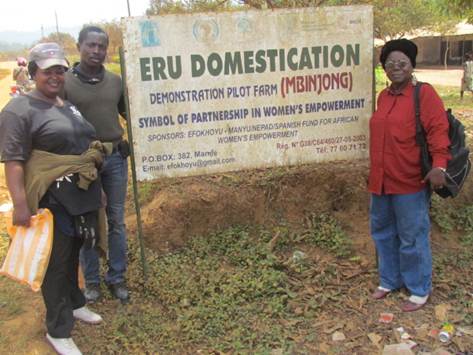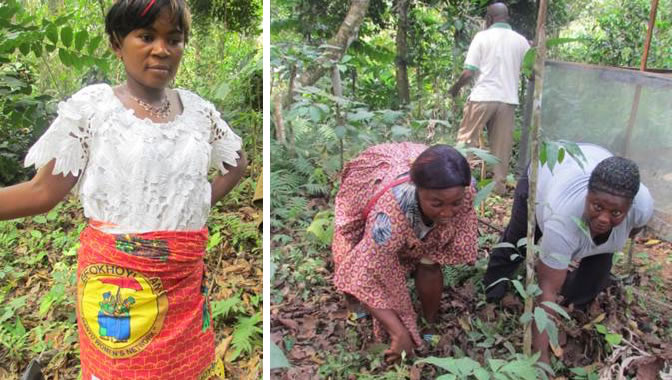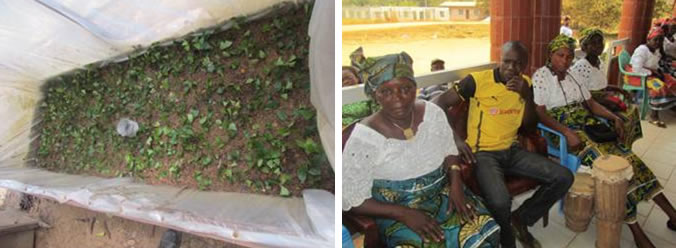NEPAD/Spanish Fund has impact on the ground - Cameroon

As the African Union meets this week in Addis Ababa to put the spotlight on African women, the NEPAD / Spanish Fund visited one of its funded projects in Cameroon to see the impact of its work on the ground.
In the Manyu Division, South West in Cameroon, the NEPAD/Spanish has supported a women’s network called Efokhoyu with a first disbursement of funding amounting to 70,458 Euro. Efokhoyu raises awareness on sustainable land management issues of ERU leaves, also referred to as wild spinach.
The vegetable is often used for soups and stews, and is a very popular food staple in Cameroon. It is also known for its medical qualities to cure enlarged spleen, sore throat, nausea and is culturally believed to ease child birth.
President of EFOKHOYU Mrs Jane Tarkang explained that as a result of over exploitation and climate change, ERU is about to disappear in Cameroon’s forests. “Eru is the staple food of many Cameroonians and fast disappearing due to over harvesting and most of the times it is done unsustainably,” Mrs Tarkang said.

Through the support of the NEPAD/Spanish Fund, the women of the Efokhoyu network acquired four pilot farms of at least one hectare each in Okoyong, Ossing, Mbinjong, and Bache in the Manyu Division to plant and harvest Eru sustainably.

Women working in Mbinjong pilot Farm
The project provided seedlings and training in modern farming techniques for increased yield and income for the women to help cover domestic costs such as utility bills and school fees.
295 women and 41 men have benefited from the training sessions organised by Efokhoyu within the Manyu Division so far.
For instance, Tanyi Victorine Mbinjong (above), a young women of 25 years, said that the ERU pilot farm is her only source of income and that she is now able to feed her family of five children and she can go back to school.
After attending a three-day training course, Mrs Eyoung was able to improve her Eru farming. Her plants produced more leaves after adding saw dust as advised during the training. She harvests the vine to feed her family but if she considered selling the vegetables, she would realise 12USD in a month from one single vine, she said.
George Mbiche is the only man trained in the Mbinjong village taking care of the propagators for the pilot farm seedlings. With the token of appreciation he receives from the job, he is able to provide for his wife and six children.

Seedlings in propagator George Mbiche (centre)
